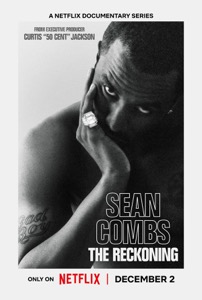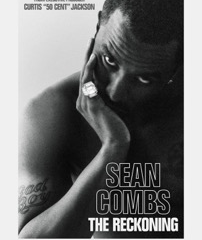Related: Celebrities Who’ve Dated or Found Love With Athletes
Advertisement
Tyler Hynes and Jannel Parrish. Getty Images (2)
The Kansas City Chiefs are finding the romance in football this NFL season.
The team’s official social media page teased a short clip of an upcoming trailer starring Tyler Hynes and Jannel Parrish on Tuesday, January 9, titled Falling for Football, in which a Chiefs fan, played by Hynes, must choose between his love for his favorite team or his girlfriend, portrayed by Parrish.
The clip begins with Parrish catching Hynes shopping for Chiefs fan gear. “You’re not just a fan, it’s your livelihood,” she says through tears, declaring “it’s the Chiefs of me” before running away. As Hynes begins to chase after her, he stops to yell, “Come on, Amber … no one hates football.”
According to the Chiefs, the full trailer — which appears to be a playful spoof on Hynes and Parrish’s Hallmark movies — will be dropping Wednesday, January 9. “Nobody hates football… catch the full trailer of Falling for Football tomorrow morning ,” the team captioned the post.
It’s unclear if the trailer will simply be a promo for the team or precede an actual TV movie, but the team also posted a poster via their Instagram that channels Hallmark’s famous Christmas romances, writing, “‘Tis the postseason, and it ain’t a holiday without a little made-for-TV movie magic.”
The artwork features Hynes and Parrish lovingly staring into each other’s eyes with a Chiefs logo between them along with the words, “Coming to a stadium near you.”
Donna Kelce reposted the poster via her Instagram Story, causing some fans to speculate if Falling for Football is inspired by her son — and Kansas City Chiefs tight end — Travis Kelce’s romance with Taylor Swift.
“If this isn’t the true story of Taylor and Travis, I’m out. ,” one fan wrote in the comments section of the Chiefs’ post. Another added, “OK marketing. This is great,” while a third user joked that the Chiefs “missed the opportunity to not have Travis Kelce and Taylor Swift as the main characters .”
Hynes, for his part, commented:”It’s me. Hi. I’m the problem it’s me. .”
Falling for Football isn’t the first time that Travis and Swift’s romance has been referenced in congruence with NFL promotional material. Last month, a promo that aired on ESPN’s Sunday NFL Countdown featured Hallmark screenwriter Julie Sherman Wolfe explaining how the 2023-2024 football season has felt akin to a Christmas movie she’d pen for her network.
Wolfe, who has written 24 movies for Hallmark, explains in the video that like her films, the NFL has been “full of twists and turns” and “moments of pure joy.” As she shares that there has also been “unexpected romance” for some players, the screen flashes to a moment of Travis, 34, on the field as Swift, also 34, cheers for him in the stands.
“Yes, someone’s heart might get broken, and not everyone gets the big kiss at the end, but the one thing that remains, especially at Christmas, is love,” she continues. “And eventually, everyone will have their storybook ending. It is Hallmark, after all.”
Travis and Swift’s relationship has been the Hallmark-esque love story of the NFL since the pair were first linked in September 2023. The couple have made a point to support each other in their respective careers in the past months, which means Swift has popped up at various Chiefs games all over the country.
While some fans of the sport have pushed back on the heavy coverage of Swift during games, Swift previously shared during her December 2023 TIME cover story that isn’t concerned with the “Dads, Brads and Chads” she may upset by showing up for her boyfriend.
“When you say a relationship is public, that means I’m going to see him do what he loves, we’re showing up for each other, other people are there and we don’t care,” Swift explained. “The opposite of that is you have to go to an extreme amount of effort to make sure no one knows that you’re seeing someone. And we’re just proud of each other.”
The Kansas City Chiefs are finding the romance in football this NFL season. The team’s official social media page teased a short clip of an upcoming trailer starring Tyler Hynes and Jannel Parrish on Tuesday, January 9, titled Falling for Football, in which a Chiefs fan, played by Hynes, must choose between his love for
Us Weekly Read More

50 Cent’s new Netflix docuseries about Sean “Diddy” Combs is more than a headline-grabbing exposé; it is a meticulous breakdown of how power, celebrity, and silence can collide in the entertainment industry.
Across its episodes, the series traces Diddy’s rise, the allegations that followed him for years, and the shocking footage and testimonies now forcing a wider cultural reckoning.

The docuseries follows Combs from hitmaker and business icon to a figure facing serious criminal conviction and public disgrace, mapping out decades of influence, branding, and behind-the-scenes behavior. Watching that arc shows how money, fame, and industry relationships can shield someone from scrutiny and delay accountability, even as disturbing accusations accumulate.

Exclusive footage of Diddy in private settings and in the tense days around his legal troubles reveals how carefully celebrity narratives are shaped, even in crisis.
Viewers can learn to question polished statements and recognize that what looks spontaneous in public is often the result of strategy, damage control, and legal calculation.
Interviews with alleged victims, former staff, and industry insiders describe patterns of control, fear, and emotional or physical harm that were long whispered about but rarely aired in this detail. Their stories underline how difficult it is to speak out against a powerful figure, teaching viewers why many survivors delay disclosure and why consistent patterns across multiple accounts matter.
As executive producer, 50 Cent uses his reputation and platform to push a project that leans into uncomfortable truths rather than protecting industry relationships. The series demonstrates how documentary storytelling can challenge established power structures, elevate marginalized voices, and pressure institutions to respond when traditional systems have failed.
Reactions to the doc—ranging from people calling it necessary and brave to others dismissing it as a vendetta or smear campaign—expose how emotionally invested audiences can be in defending or condemning a famous figure. Watching that debate unfold helps viewers see how fandom, nostalgia, and bias influence who is believed, and why conversations about “cancel culture” often mask deeper questions about justice and who is considered too powerful to fall.

A new Christmas-themed episode of South Park is scheduled to air with a central plot in which Satan is depicted as preparing for the birth of an Antichrist figure. The premise extends a season-long narrative arc that has involved Satan, Donald Trump, and apocalyptic rhetoric, positioning this holiday episode as a culmination of those storylines rather than a stand‑alone concept.
According to published synopses and entertainment coverage, the episode frames the Antichrist as part of a fictional storyline that blends religious symbolism with commentary on politics, media, and cultural fear. This follows earlier Season 28 episodes that introduced ideas about Trump fathering an Antichrist child and tech billionaire Peter Thiel obsessing over prophecy and end‑times narratives. The Christmas setting is presented as a contrast to the darker themes, reflecting the series’ pattern of pairing holiday imagery with controversial subject matter.
Coverage notes that some figures connected to Donald Trump’s political orbit have criticized the season’s portrayal of Trump and his allies, describing the show as relying on shock tactics rather than substantive critique. Commentators highlight that these objections are directed more at the depiction of real political figures and the show’s tone than at the specific theology of the Antichrist storyline.
At the time of reporting, there have not been widely reported, detailed statements from major religious leaders focused solely on this Christmas episode, though religion-focused criticism of South Park in general has a long history.
Entertainment outlets such as The Hollywood Reporter, Entertainment Weekly, Forbes, Slate, and USA Today describe the Antichrist arc as part of South Park’s ongoing use of Trump-era and tech-world politics as material for satire.
South Park is rated TV‑MA and is intended for adult audiences due to strong language, explicit themes, and frequent use of religious and political satire. Viewers who are sensitive to depictions of Satan, the Antichrist, or parodies involving real political figures may find this episode particularly objectionable, while others may view it as consistent with the show’s long‑running approach to controversial topics. As with previous episodes, individual responses are likely to vary widely, and the episode is best understood as part of an ongoing satirical series rather than a factual or theological statement.

Sydney Sweeney has decided she is finished watching strangers on the internet treat her face like a forensic project. After years of side‑by‑side screenshots, “then vs now” TikToks, and long comment threads wondering what work she has supposedly had done, the actor is now addressing the plastic surgery rumors directly—and using them to say something larger about how women are looked at in Hollywood and online.

Sweeney points out that people are often mistaking normal changes for procedures: she grew up on camera, her roles now come with big‑budget glam teams, and her body has shifted as she has trained, aged, and worked nonstop. Yet every new red‑carpet photo gets folded into a narrative that assumes surgeons, not time, are responsible. Rather than walking through a checklist of what is “real,” she emphasizes how bizarre it is that internet detectives comb through pores, noses, and jawlines as if they are owed an explanation for every contour of a woman’s face.
By speaking up, Sweeney is redirecting the conversation away from her features and toward the culture that obsesses over them.
She argues that the real issue isn’t whether an actress has had work done, but why audiences feel so entitled to dissect her body as public property in the first place.
For her, the constant speculation is less about curiosity and more about control—another way to tell women what they should look like and punish them when they do not fit. In calling out that dynamic, Sweeney isn’t just defending herself; she is forcing fans and followers to ask why tearing apart someone else’s appearance has become such a popular form of entertainment.


Colombia’s ‘Doll’ Arrest: Police Say a 23-Year-Old Orchestrated Hits, Including Her Ex’s Murder


Miley Cyrus Is Engaged to Maxx Morando


Disney Brings Beloved Characters to ChatGPT After $1 Billion OpenAI Deal


Luana Lopes Lara: How a 29‑Year‑Old Became the Youngest Self‑Made Woman Billionaire


Netflix Got Outbid: Paramount Drops a $108 Billion Cash Bomb on Warner Bros.


Anne Hathaway Just Turned Her Instagram Bio Into a 2026 Release Calendar


What We Can Learn Inside 50 Cent’s Explosive Diddy Documentary: 5 Reasons You Should Watch


Netflix’s $82.7 Billion Warner Bros Deal Signals the Rise of a New Hollywood Power